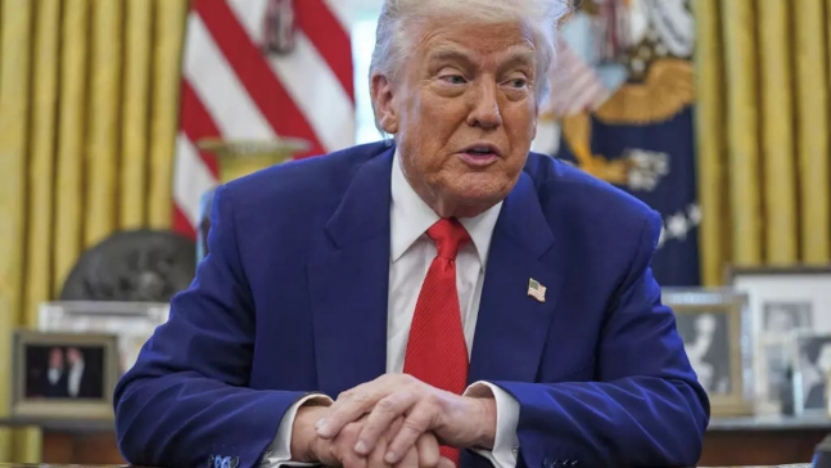
Faced with the collapse of the global market, President Donald Trump suddenly lifted tariffs on most countries for 90 days on Wednesday. Previously, he acknowledged that these tariffs made the market nervous, but excluded China from the new arrangement and raised tariffs on China to 125% because he felt that "China lacks respect for the global market".
Faced with immense pressure from turbulent financial markets, Trump has been forced to reconsider his tariffs, despite some government officials insisting that his reversal has always been his plan. As stocks and bonds sell off, voters watch helplessly as their retirement savings shrink, businesses warn that sales are worse than expected, and prices continue to rise, all of which could have a heavy blow to a country that promised to fight inflation last year and brought Trump back to the White House.
On Wednesday morning, with the implementation of tariff policies, the global economy seemed to openly resist Trump's tariffs, indicating that the US president is not immune to market pressure. By early afternoon, Trump posted on TruthSocial that over 75 countries had engaged in trade negotiations with the US government, and as the government prepared for country by country talks, the dramatic events surrounding Trump's tariffs were far from over. Meanwhile, countries subject to the suspension of tariffs will now be subject to a 10% tariff. This seems to be an attempt to narrow down the unprecedented trade war between the United States and most parts of the world to a trade war between the United States and China. However, the head of the World Trade Organization, Ngozi Okonjo Iweala, stated that a trade war between the United States and China could "seriously damage the global economic outlook" and warned that "global trade may split along geopolitical routes".
Trump later told reporters that due to the stock market downturn causing people to be "radical" and "afraid," he canceled multiple global tariffs, except for China. Trump said he has been keeping an eye on the bond market, and with bond prices falling and interest rates rising, investors have cast a vote of no confidence in Trump's previous tariff plan, causing people to be "a bit uneasy". After several days of market turbulence, the Wall Street stock market experienced a historic surge following Trump's announcement to halt tariffs on almost all countries within 90 days.
Trump's latest round of tariffs will soon be implemented, in addition to the 125% tariff on China, which includes a 20% tariff on the European Union, a 24% tariff on Japan, and a 25% tariff on South Korea. Canada and Mexico will also continue to be subject to tariffs of up to 25%, as Trump has issued a separate directive to ostensibly stop fentanyl smuggling. US government officials have attempted to assure voters, Republican lawmakers, and CEOs that tax rates are negotiable, but have also indicated that this process may take several months.
Overall, the latest tariff policy of the United States is attempting to divide the global trade camp by exempting tariffs from most countries, in order to concentrate its firepower on pressuring China, isolating China, and forcing it to make concessions. Some analyses suggest that this move by the United States is actually a 'tariff harvest', repeatedly seizing economic benefits through manufacturing policies, but this may exacerbate the fragmentation of the global trading system. After the announcement of the new policy, the US stock market experienced a retaliatory rise, indicating that the tariff policy may serve the short-term interests of the capital market. The global supply chain may face a new round of turbulence, especially for multinational companies that rely on Sino US trade, which will bear dual pressure. Chinese export companies may face challenges such as declining orders and rising costs in the short term.

Since 2022, the Fed has cumulatively reduced its balance sheet by $2.4 trillion through quantitative tightening (QT) policies, leading to a near depletion of liquidity in the financial system.
Since 2022, the Fed has cumulatively reduced its balance sh…
On December 11 local time, the White House once again spoke…
Fiji recently launched its first green finance classificati…
Recently, the European Commission fined Musk's X platform (…
At the end of 2025, the situation in the Caribbean suddenly…
The U.S. AI industry in 2025 is witnessing a feverish feast…